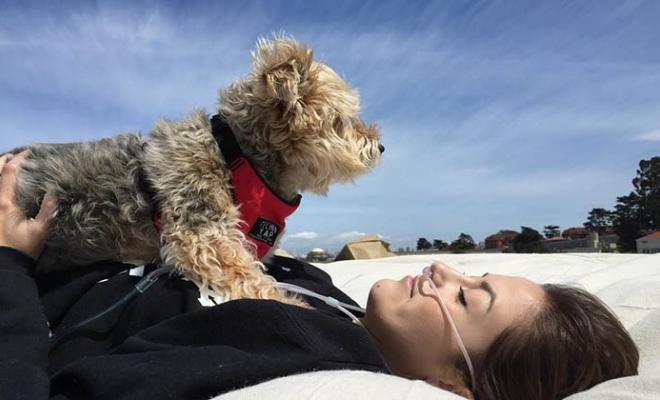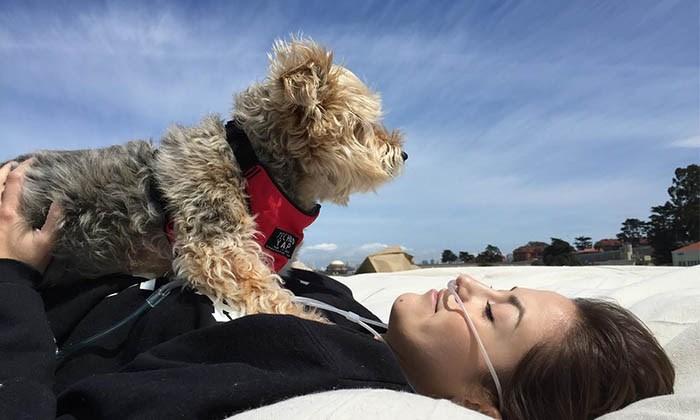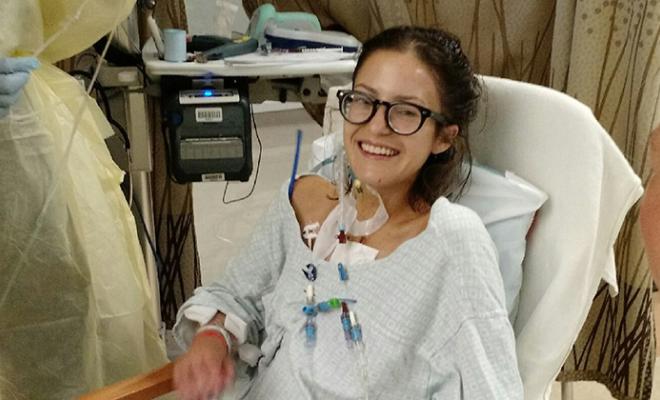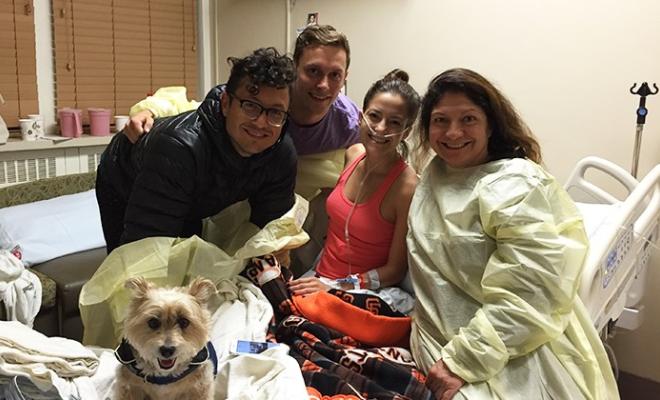After about a month in the hospital, my doctors told me that my body was failing and I was too sick to undergo a double-lung transplant; that I wasn't going to survive. It had been a rough several months. I had been working as a pastry cook in one of the top restaurants in San Francisco -- Gary Danko. I was proud to have this job, and I ate, drank, slept and breathed the culinary lifestyle. My part-time schedule quickly turned into more than 13-hour days, five days a week.
The culinary lifestyle had some serious drawbacks for a person with cystic fibrosis. I spent hours in the freezer followed by time in the hot kitchen -- the perfect recipe for pneumonia and infection. My cough increased and I began losing weight. But my passion for my work kept me from, what I considered at the time, surrendering by hospitalizing myself.
One morning, I woke up gasping for oxygen and struggling to walk. I had no choice but to go to the ER. Hoping my treatments and medication at home would smother the infection was no longer an option. The reality of how much my body had declined was horrifying. My lung function had dropped drastically from 40 percent to 18 percent. I had lost 22 pounds from my already slim frame of 88. I was given total parenteral nutrition (TPN) and lipids, both necessary for my survival, while also being encouraged to do oral intake when I felt strong enough to eat.
Not only had my physical health diminished, but my care team considered me too “noncompliant” with my daily treatment plan prior to my hospitalization. My team connected me to palliative care and planned on discharging me as soon as I was stable enough. They also discussed a do not resuscitate (DNR) form with me. They explained that if anyone were to resuscitate me with a lung function so low, my odds of coming off a ventilator were slim. And if I was not listed for a transplant, there would be no positive outcome for me -- leaving my family with difficult decisions to make (or for me to make myself through a living will or advanced directive).
I felt completely hopeless. The reality of the situation was scary. To me, it wasn't so much facing death as it was leaving my family. Family members came to say their final goodbyes. Person after person tried to hold back tears, told me not to give up, but I knew, and they knew, that they were saying goodbye.
I was ready to go on palliative care. Yet at the same time, I reminded myself that I was given this life because it was meant for me and I was thankful for it, as I still am. I am thankful that my siblings are healthy every day and I inherited the two CF recessive genes.
As I prepared to leave the hospital, I asked for a list of all the reasons I wasn't able to be listed for a transplant. Then, my team, my family and I made the list of “impossible” goals:
- Gain weight steadily, with the goal weight of 95 pounds.
- Follow my care team's treatment advice completely.
- Get a gastrostomy-jejunostomy (G-J) tube to fulfill nutritional requirements before being discharged.
- Control blood sugars with the goal of less than 180 milligrams per deciliter (mg/dL).
- Lower A1C with the goal of 8-5.
- Attend cystic fibrosis clinic and endocrine clinic as scheduled.
- Call the transplant team coordinator with any health updates.
My family saved my life. They gave me the encouragement I needed to believe in myself and the want and will to live. My life seemed overwhelming; but my mom gave me hope. She dedicated herself to keeping me alive. The day before I arrived home, she cancelled palliative care for me. Instead, she had oxygen installed at home, along with all the necessities for my tube feedings and new medications. Coming home was one of my biggest victories to date.
Looking in the mirror for the first time was surprising. My body looked fragile, my skin pale, my nails and lips a blueish-purple from lack of oxygen. I was losing my hair and my facial features had become so gaunt it was hard to recognize myself. All that aside, I placed the “impossible” list on the front of my refrigerator, my DNR form on the side of the fridge. Every day for that next year, I dedicated myself to checking items off that list until I was done.
The doctors told me I was going to die at 22. Now, three years later, I have new lungs and a new life. Turns out, the “impossible” is possible.








